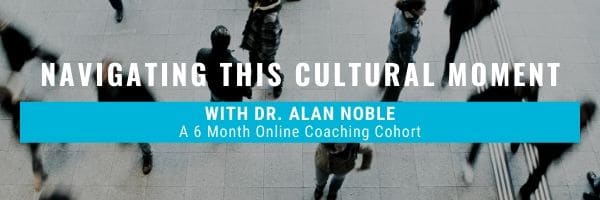Too Close For Comfort
There are two major challenges to wisely navigating contemporary culture. The first challenge is as old as humanity: We are too close to our own culture to see it accurately. When you grow up in a particular society, many of its deepest and most influential qualities will be invisible to you. They will feel entirely normal. In fact, you may not be able to imagine living otherwise. It’s not until you come in contact with another culture, through travel or study, that you begin to realize that much of what you think of as basic to human experience is actually a choice or a construct. If you cannot see your own culture rightly, you cannot discern the right way to live in it.
Invisible To Us
Consider just one example: individualism. Most Americans (and westerners in general) consider autonomy, self-expression, and self-discovery to be the cornerstones of a good life. To life rightly, you need to discover your true self, express that true self, and refuse to conform to alternate standards imposed by society (autonomy). You can hear ideas like this everywhere from inspirational posters on the walls of elementary schools to major films. But if we were living just a few hundred years ago, these values would be incomprehensible to us. We know who we are because we are born to particular people in a particular time and particular place and particular class. We live rightly when we fulfill the duties of our station.
Thankfully, we don’t live in the Middle Ages (I would make a terrible serf), and most of us have the freedom to pursue our interests and passions, but if we never consider the consequences of individualism, we will be ignorant to the ways it harms us: shattering communities, encouraging consumption, undermining morals. And that is just one example. We could also look at the way perpetual distraction (which is the new normal) shapes our thinking or our faith. The point is, many of the most critical qualities of our culture are invisible to us.
If you cannot see your own culture rightly, you cannot discern the right way to live in it. @thealannoble
The Second Challenge
The second challenge is unique to our moment in history: Technological advances far outpace our ability to evaluate, moderate, or regulate them. In the past, technology advanced slowly enough that communities could evaluate innovations, determine their harm, and regulate or modify them before they spread too widely and before another major innovation appeared. When the printing press was invented and began to spread, we were able to slowly develop censorship and copyright laws to regulate the technology for the common good—so that harmful ideas did not spread and authors were compensated for their labor.
Now imagine that a year after the printing press was invented, someone invented the lightbulb. And the next year, the telephone. And eight months later, the combustion engine. Before we would have time to discover the benefits and harms introduced by the rapid production of books, we’d be suffering from longer work hours enabled by the lightbulb, and mass communication enabled by the phone, and mass transit enabled by the combustion engine.
Overcoming These Challenges
This, in a less dramatic form, is the problem we face today. By the time parents discover what “Snapchat” is, their teenagers have abandoned the app for Tik-Tok or Twitch. How does reading the bible on your phone in church (as opposed to pew bibles, for example) change the way we participate in a service? What are the dangers of publishing sermons as podcasts? Every new technology requires time, experience, and discernment. But the sheer about of new technologies and the speed of innovation makes the task of discerning overwhelming.
Before we know whether or not it is wise to post thousands of pictures with geolocation tags and names and dates onto Facebook, we’ve already done it, for years! Before we’ve had time to consider the value of sharing Christian memes, entire internet subcultures are created for this purpose.
To overcome these challenges, we need to see our culture through the lens of history and form habits of delay and discernment. When we understand how our society developed, we can see and evaluate what is unique about our time. And when we learn to delay adopting new technology and to discern its value, we can be driven by wisdom rather than the constant flow of progress.
Interested in going deeper and getting personal coaching from Dr. Noble on navigating culture?
Check out this coaching cohort on navigating culture:

